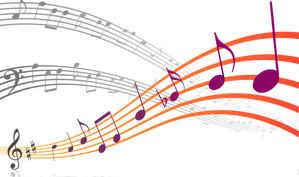Alabama Symbols
- 50 States
- » Histories
- » State Symbols
- » Songs
Alabama State Song
"Alabama"
Written by Julia S. Tutwiler
Composed by Edna Gockel Gussen
Adopted on March 3, 1931.
The Alabama State Song, "Alabama," was adopted on March 3, 1931. The music by Mrs. Edna Gockel Gussen, Birmingham, was adopted by the State Federation of Music Clubs and through their efforts, Alabama House Joint Resolution 74 , Act no. 128, adopted the music and words as the state song of Alabama on March 3, 1931.
Alabama State Song: "Alabama"
"Alabama"
Alabama, Alabama, We will aye be true to thee,
From thy Southern shores where groweth,
By the sea thy orange tree.
To thy Northern vale where floweth,
Deep blue the Tennessee,
Alabama, Alabama, we will aye be true to thee!
Broad thy stream whose name thou bearest;
Grand thy Bigbee rolls along;
Fair thy Coosa-Tallapoosa
Bold thy Warrior, dark and strong,
Goodlier than the land that Moses
Climbed lone Nebo's Mount to see,
Alabama, Alabama, we will aye be true to thee!
From thy prairies broad and fertile,
Where thy snow-white cotton shines,
To the hills where coal and iron
Hide in thy exausted mines,
Strong -armed miners -sturdy farmers;
Loyal hearts what'er we be,
Alabama, Alabama, we will aye be true to thee!
From thy quarries where the marble
White as that of Paros gleams
Waiting till thy sculptor'ss chisel,
Wake to life thy poet's dreams;
Fear not only wealth of nature,
Wealth of mind has no fee,
Alabama, Alabama, we will aye be true to thee!
Where the perfumed south-wind whispers,
Thy magnolia groves among,
Softer than a mother's kisses,
Sweeter than a mother's song,
Where the golden jasmine trailing,
Woos the treasure-laden bee,
Alabama, Alabama, we will aye be true to thee!
Brave and pure thy men and women,
Better this than corn and wine
Make us worthy, God in Heaven
Of this goodly land of Thine.
Hearts as open as thy doorways.
Liberal hands and spirits free.
Alabama, Alabama, we will aye be true to thee!
Little, little can I give thee,
Alabama, mother mine.
But that little - hand, brain, spirit.
All I have and am are thine.
Take, O take, the gift and giver.
Take and serve thyself with me.
Alabama, Alabama, we will aye be true to thee!
Origin of Song: "Alabama"
The words of Alabama, the state song, were written by Julia S. Tutwiler, a distinguished educator and humanitarian. It was first sung to an Austrian air but in 1931, through the interest of the Alabama Federation of Music Clubs, the music written by Mrs. Edna Gockel Gussen, Birmingham, was adopted by the legislature as the official state song. The bill was introduced by the Hon. Tyler Goodwyn, Montgomery, and was approved by Governor B. M. Miller.
The inspiration for writing the poem Alabama came to Julia Tutwiler after she returned to her native state from Germany where she had been studying new educational methods for girls and women. She recalled that in Germany patriotism was kept aflame by spirited songs. She thought that it would be helpful toward restoring the spirits of her own people to give them a new patriotic song, so she wrote a fatherland song and called it Alabama.
The music by Mrs. Edna Gockel Gussen, Birmingham, was adopted by the State Federation of Music Clubs and through their efforts, House Joint Resolution 74 was adopted March 3, 1931. Act no. 128, adopted the music and words as the state song of Alabama.
On March 3, 1931 the music by Mrs. Edna Gockel Gussen, Birmingham, was adopted by the State Federation of Music Clubs and through their efforts, Alabama House Joint Resolution 74 , Act no. 128, adopted the music and words as the state song of Alabama.
Julia Strudwick Tutwiler (1841-1916)
Julia Strudwick Tutwiler is said to have been born fifty years ahead of her time. She succeeded in her lifetime in bringing the educational and penal practices of the state into step with her own advanced ideas.
At a time when women were not educated beyond the level of "finishing school," "Miss Julia" forced the entry into the University of Alabama of ten female students; overriding protests that the university would lose prestige. The ten students were products of an experiment of Miss Julia's, a training school for women teachers. She later established the first technical school for girls, now known as the University of Montevallo.
The state prison system underwent a complete upheaval under the forceful persuasion of Julia Tutwiler, who became as well-known to the legislators of that period as the governor. She won separate prisons for male and female prisoners, the state women's prison being named in her honor. She succeeded in getting juveniles separated from hardened criminals and placed in the Alabama Boys Industrial School. She won the establishment of a prison board and program for sanitation and inspection of all prisons. She instituted schools and religious services in prisons, going to the prisons herself on Sunday mornings to deliver sermons and to read from the Bible. Known also as a poet and an author, her poem , was adopted as the state song in 1931.
Source: Acts of Alabama, March 9, 1931
Alabama State Emblems, Alabama Department of Archives and History, nd.
Alabama Law
The law designating the poem "Alabama," as the official Alabama state song is found in the Code of Alabama, 1975, Title 1, Chapter 2, Section 1-2-16.
TITLE 1.
Chapter 2 - STATE SYMBOLS AND HONORS.
Section 1-2-16
State song.
The poem "Alabama," a gift to the people of the state from Julia S. Tutwiler, together with the original music written for such poem by Edna
Gockel-Gussen, which music has been approved and adopted by the Alabama Federation of Music Clubs, is hereby adopted as the state song of Alabama.
(Acts 1931, No. 126, p. 190.)








